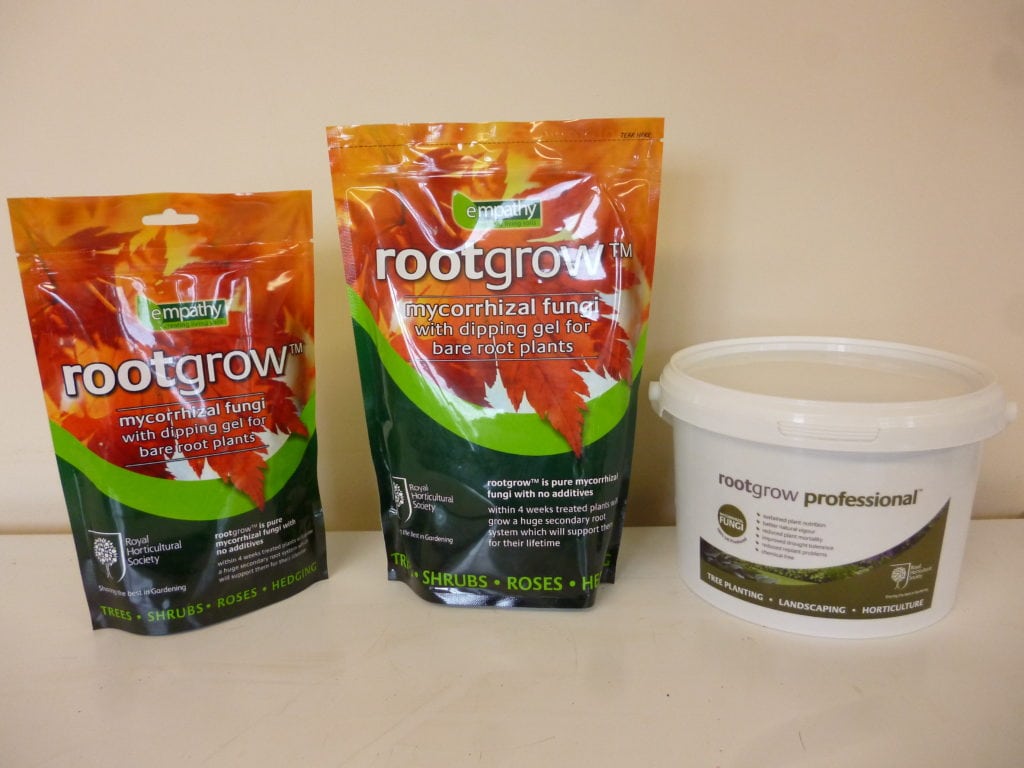
The Benefits of Rootgrow for Hedges & Bare-Root Plants
When establishing new hedges or bare root plants, the initial root development phase is crucial for long-term success. Rootgrow, a mycorrhizal fungi product, has become increasingly popular among gardeners and landscapers for its ability to enhance plant establishment and growth. Here's why this completely natural, biological soil improver deserves consideration for your next planting project.
What is Rootgrow?
Rootgrow is a culture of a naturally occurring beneficial fungi which encourages plants to produce a huge secondary root system, significantly increasing the area from which the plant can absorb water and nutrients.
5 Key Benefits of Rootgrow for Hedges
1. Drought Tolerance
Plants treated with Rootgrow develop greater drought tolerance because the fungal network can access water from a much larger soil volume. This is particularly valuable for newly planted hedges and bare root plants, which are vulnerable to drought stress during their establishment phase.
2. Faster Establishment
Hedges and bare root plants treated with Rootgrow typically establish more quickly than untreated plants. The enhanced nutrient and water uptake accelerates root development and encourages stronger above-ground growth, helping plants overcome transplant shock more rapidly.
3. Exceptionally Easy to Use
One of Rootgrow's standout advantages is its simplicity. Novice gardeners can apply it successfully with minimal effort. The granular formula can be sprinkled directly into planting holes or mixed with water to create a root dip. There's no complex measuring or timing required—simply apply once at planting time for long-lasting benefits. The user-friendly nature of Rootgrow makes incorporating beneficial fungi into your planting routine practically foolproof.
4. Reduced Need for Fertilizers
The improved nutrient absorption efficiency means plants require less supplementary fertilisation. This not only saves money but also reduces the environmental impact of chemical fertilisers.
5. Long-Term Benefits
Once established, the mycorrhizal relationship continues to benefit the plant throughout its life. The fungi receive carbohydrates from the plant while continually expanding the soil area from which they gather nutrients for the plant.
Rootgrow for Native Hedging Species
Rootgrow is particularly beneficial when planting bare root hedging, particularly native hedging such as beech, hornbeam, blackthorn, hawthorn, hazel, field maple and spindle.
These native hedging plants typically develop extensive root systems that form strong symbiotic relationships with mycorrhizal fungi. When planted as bare root stock, they initially have limited root capacity to explore the soil for nutrients and water. The application of Rootgrow bridges this vulnerable gap by immediately providing the beneficial fungi that would naturally take years to colonise the root zone.
For beech and hornbeam hedges, which retain their leaves when dormant, Rootgrow helps establish the robust root system needed to support their distinctive foliage characteristics. For fruiting species like blackthorn, hawthorn, and hazel, the enhanced nutrient uptake can improve flowering and subsequent fruit production, benefiting both the gardener and local wildlife.
Improve Establishment Success & Long-Term Plant Health
For anyone planting hedges, fruit trees or bare root plants, Rootgrow provides a natural way to improve establishment success and long-term plant health. The initial investment in this biological soil improver can lead to stronger, more resilient plants that require less maintenance and supplementary feeding—a win for both gardeners and the environment
Shop Rootgrow with Dipping Gel. Alternatively, get in touch by calling us on 01252 714552 and we can advise you on what would be suitable for your planting requirements.
